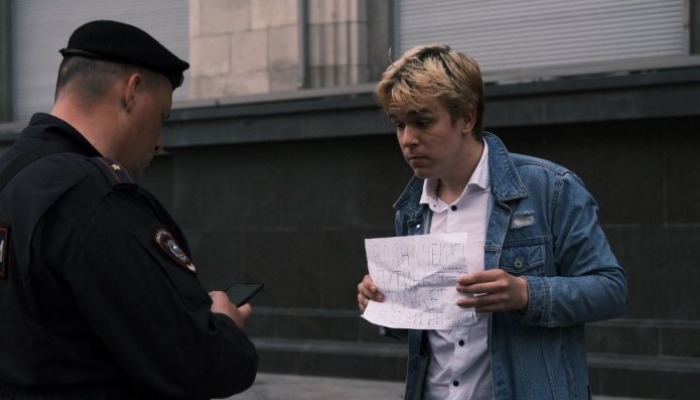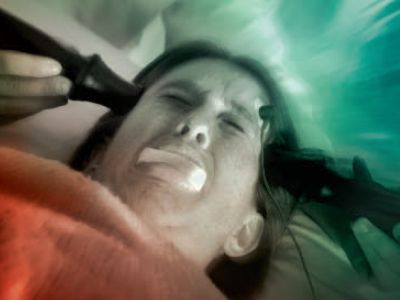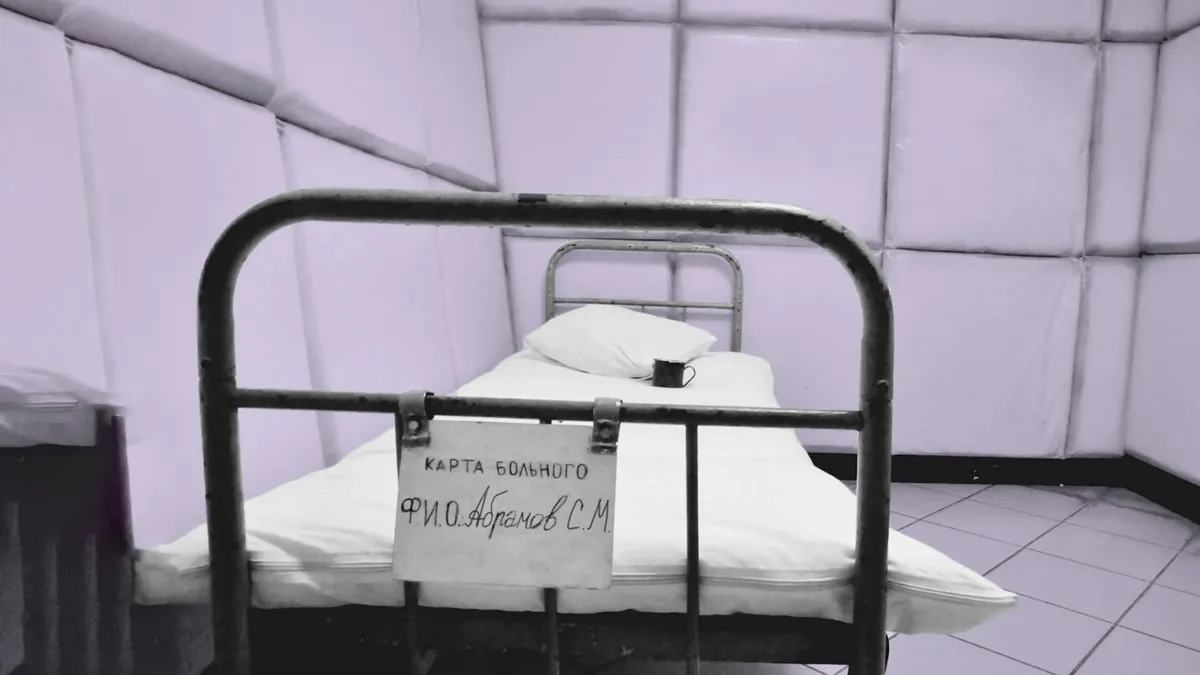Putin's regime has revived the practice of forced psychiatric treatment, once widespread in the Soviet Union, to suppress dissidents, anti-war activists, and even children and teens expressing pro-Ukrainian views.
This isn't about medical care. Russia is systematically destroying people's ability to perceive reality and voice dissent against the regime's lawlessness.
Russia sentences dozens to psychiatric detention for opposing the war
Last year, Russian courts sentenced at least 49 people to compulsory psychiatric treatment for political reasons, according to the Human Rights Center Memorial. Most were anti-war activists who condemned Russia's invasion and airstrikes against Ukraine.
Key facts about Russia's psychiatric repression:
- At least 49 political prisoners sent to psychiatric detention in 2024
- Majority are anti-war activists opposing Ukraine invasion
- Includes minors with pro-Ukrainian views in occupied territories
- Victims injected with powerful antipsychotic drugs like haloperidol
- No release date—detention lasts until authorities declare them "cured"
Anti-war activist sent to psychiatric hospital instead of prison
Maksim Lypkan, an 18-year-old anti-war activist, was accused of spreading "fakes" about the Russian army—truthful information that carries up to 10 years in prison.

Instead of imprisonment, the Odintsovo City Court of the Moscow region sent him to compulsory psychiatric treatment on 19 February 2024.
"The criminal case against the accused was terminated due to his insanity at the time of the offense. … Compulsory medical measures have been applied to him in the form of forced treatment in a medical institution providing inpatient psychiatric care of a specialized type," the Russian state propaganda agency TASS quoted a court representative as saying.
Designer detained for documenting Russian war crimes in Bucha
Maria Semerenko, a designer from the Moscow suburb of Korolyov, consistently opposed Russia's war against Ukraine. She regularly posted information about Russian war crimes on social media.

In October 2022, Russian authorities arrested her on charges of spreading "fakes" about the Russian army under Article 207.3, Part 2 of Russia's Criminal Code. The investigation opened after her Instagram post about the genocide of Ukrainians committed by Russian soldiers in Bucha near Kyiv.
Instead of issuing a guilty verdict, the court ordered her to undergo compulsory treatment in a psychiatric hospital.
Memorial, guided by international criteria, recognizes Maria Semerenko as a political prisoner and considers the measures applied against her an example of punitive psychiatry.
How Russia uses psychiatric detention to silence dissent
"The scenario is the same in all such cases—at some point, the accused is declared insane and sent to a psychiatric hospital," human rights defenders highlighted.
Inside these facilities, political prisoners face systematic abuse:
- Physical beatings and humiliation
- Forced injections of haloperidol and other powerful antipsychotics
- Indefinite detention until authorities declare them "recovered"
- No formal sentence or release date
- Complete isolation from legal recourse
Victims may remain under "treatment" indefinitely. This allows Russian authorities to place dissidents in psychiatric hospitals for years without any formal sentence—physically eliminating opposition to the war.

As in Soviet times, Kremlin again misusing psychiatry against its political opponents, Svetova says
Russia extends psychiatric repression to Ukrainian children in occupied territories
Russian authorities in occupied Donetsk have extended this practice to children with pro-Ukrainian views.
In the occupied territories, Russian forces developed clear markers to identify all "disloyal" Ukrainians, including children and teenagers. This is documented in the Analytical Report "How Russia Erases Ukrainian Identity Under the Pretext of Combating Extremism," presented on 26 August 2025, in Kyiv.
Russia openly states that the ultimate enemy of its so-called "special military operation" is not only Ukraine, but also the United States and the entire Western world. In Russian strategic documents, Ukraine is portrayed as the main source of "extremist threats."
To pursue these goals, Russian authorities in occupied Ukrainian territories carry out measures under the guise of "counter-extremism," masking them as protection of public order, as emphasized by Maria Krasnenko, the report's author and expert at the Almenda Center for Civic Education.
Systematic persecution targets Ukrainian youth
Russian authorities employ all possible methods of systemic persecution, with special focus on children and youth. Education and state-controlled youth policy serve as main tools in the so-called fight against "extremism."
According to official Russian data from Donetsk:
- 161 minors prosecuted for "extremism"
- 48 subjected to forced psychiatric treatment
- Additional children face administrative punishments and fines
- Systematic targeting through schools and youth programs
Why Russia's psychiatric abuse matters for global security
Russia's war against Ukraine clearly bears the hallmarks of genocide—evidence Russian authorities seek to conceal from both their own people and residents of occupied Ukrainian territories.
The return of punitive psychiatry, tragically infamous since the Soviet era, demonstrates Putin's dictatorial regime's determination to isolate anti-war activists and other dissidents.
The goal is to erase from victims' minds any oppositional criticism about Russia's war crimes in Ukraine and the will to resist brutal repression inside the country.
This is why the Western democratic world must not only maintain but intensify support for Ukraine. Russia's machinery of repression and violence cannot be allowed to extend further across Europe.
The Soviet Union's systematic abuse of psychiatry against dissidents was internationally condemned for decades. Putin's revival of this practice shows how authoritarianism uses medical institutions as weapons against those who dare to speak truth.
Editor's note. The opinions expressed in our Opinion section belong to their authors. Euromaidan Press' editorial team may or may not share them.
Submit an opinion to Euromaidan Press





